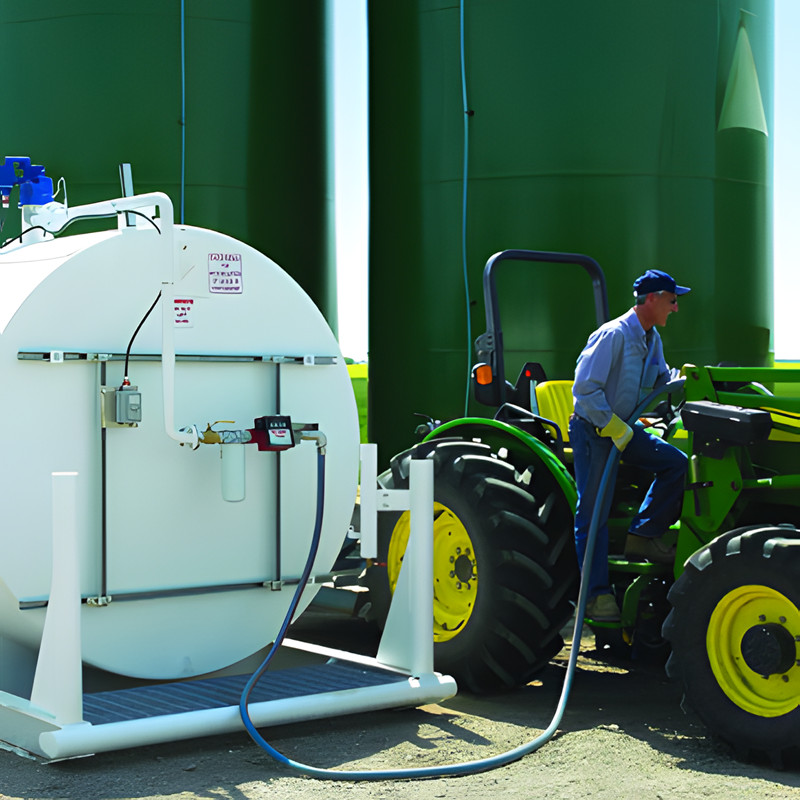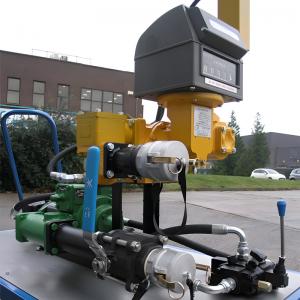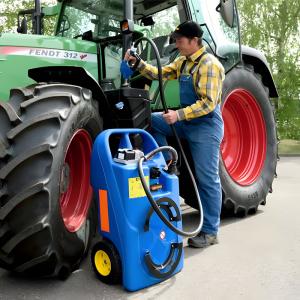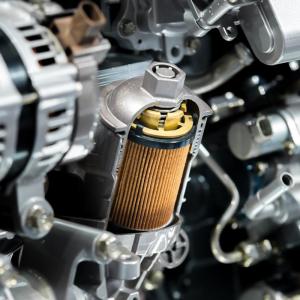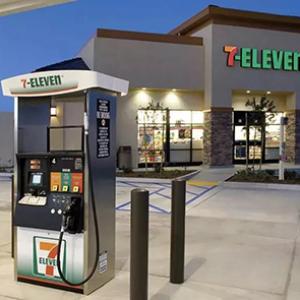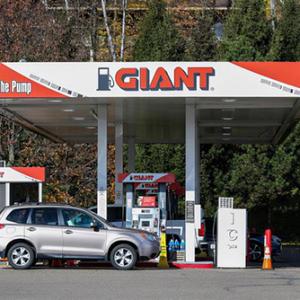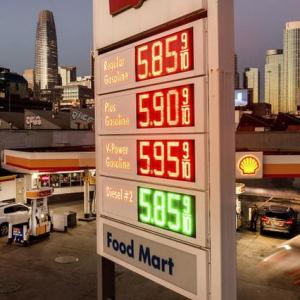How Long Will Diesel Fuel Last?
The Ultimate Guide to Diesel Fuel's Shelf Life
If you've ever stored diesel for a backup generator, an off-road vehicle, or an emergency supply, you've probably wondered: just how long is this fuel good for? The answer isn't as simple as a single number. While diesel is known for its durability, it's a volatile organic compound that begins to degrade the moment it's refined. Understanding its lifespan and the factors that influence it is crucial for anyone who relies on stored fuel.
So, how long will diesel fuel last? On average, a batch of diesel fuel has a shelf life of 6 to 12 months. However, this timeframe can be significantly extended to 1.5 to 2 years or even longer with proper storage and maintenance. The key to maximizing its life lies in understanding the enemies of stored diesel: oxidation, contamination, and temperature.
Understanding Diesel Fuel's Shelf Life
Diesel fuel degradation isn't a single process; it's a combination of chemical and biological reactions that turn a clear, stable liquid into a sludge-filled mess.
-
Oxidation: This is the primary chemical process that affects stored diesel. When fuel is exposed to oxygen, it undergoes a reaction that forms gums, varnishes, and other sediments. These particles not only cloud the fuel but can also clog filters and injectors, leading to poor engine performance or even complete failure. This is why keeping your storage tank full is a common best practice—it leaves less room for air and slows down the oxidation process.
-
Microbial Contamination ("The Diesel Bug"): This is perhaps the most insidious threat to stored diesel. The "diesel bug" is a mix of bacteria, fungi, and algae that thrive in the interface between diesel and water. This is a particularly modern problem, as today's ultra-low sulfur diesel (ULSD) lacks the natural biocide properties of older, high-sulfur fuels. These microbes feed on the hydrocarbons and create a slimy, dark biomass that can clog fuel filters in minutes. A tell-tale sign of this contamination is a dark, slimy film on the inside of your tank or a sour, rotten-egg smell.
-
Water Contamination: Water is the catalyst for microbial growth and a source of rust in steel tanks. Condensation inside a tank is a natural occurrence, especially with daily temperature fluctuations. This water sinks to the bottom of the tank, creating the perfect breeding ground for microbes. It's why regular tank inspection and water removal are critical.
-
Temperature: Heat is the ultimate accelerator. High temperatures speed up the oxidation process and promote microbial growth. Storing fuel in direct sunlight or in a hot warehouse is a recipe for rapid degradation. The ideal temperature range for long-term diesel storage is between 20°F and 70°F (-6°C and 21°C).
-
Fuel Type: Not all diesel is created equal. Biodiesel blends, such as B5 or B20, have a shorter shelf life than pure ULSD. This is because the organic compounds in biodiesel are more susceptible to water absorption and microbial growth. For long-term storage, it's generally best to use pure ULSD if possible.
Optimizing Storage for Longevity: Best Practices
Proper storage is the single most important factor in extending your diesel fuel's lifespan. By controlling the environment, you can drastically reduce the risk of degradation.
-
Use the Right Storage Containers: For long-term storage, a sealed, durable tank is essential. For smaller quantities, a robust, rust-proof diesel fuel tank with pump is an excellent investment. The pump allows for easy and clean transfers, minimizing exposure to air and contaminants. Always use tanks designed specifically for fuel storage; do not use containers meant for other liquids.
-
Keep Your Tank Full: This simple practice is one of the most effective. A full tank leaves minimal air space for condensation to form. The less water in the tank, the lower the risk of microbial contamination.
-
The Power of Fuel Additives: For any stored diesel, fuel additives are your best friend.
-
Fuel Stabilizers: These products are specifically designed to slow the oxidation process. They contain antioxidants that prevent the formation of sludge and varnishes.
-
Biocides: If you're concerned about the "diesel bug," a biocide is a non-negotiable additive. It kills existing microbes and prevents future growth. Use it as a preventative measure before contamination occurs.
-
Water Demulsifiers: These additives help to separate water from the fuel, allowing it to be easily drained from the bottom of the tank.
-
-
Store in a Cool, Dark Place: Storing your tank in a shaded, climate-controlled area or even underground is ideal. The cooler and more stable the temperature, the slower the degradation process.
Specific Applications: How Long Does Fuel Last in a Generator or Vehicle?
The application of the fuel also dictates its potential longevity.
-
Diesel Generator Fuel Tanks: For standby generators, especially those used infrequently, fuel stability is a major concern. The fuel can sit for months, or even years, between uses. This is the perfect scenario for microbial growth and degradation. To protect your investment, always fill your diesel generator fuel tanks with a high-quality fuel stabilizer and biocide. A regular maintenance schedule should include draining the tank and replacing the fuel every 18-24 months, even if it hasn't been used.
-
Vehicles and On-the-Go Storage: The fuel in your vehicle's tank is typically consumed and replaced frequently, so degradation is less of a concern. However, if a car or truck is stored for an extended period, the same rules apply. For portable fuel solutions like a diesel pump fuel setup for construction or farming, it's wise to use stabilizers and rotate your stock regularly.
Recognizing Degraded Fuel
How can you tell if your fuel has gone bad? Trust your senses.
-
Appearance: Fresh diesel is typically a clear, yellowish or light brown liquid. Degraded fuel will be noticeably darker and may have a cloudy, murky appearance. You might see sediment or a stringy, dark film at the bottom of the container.
-
Smell: While diesel has a distinct odor, bad fuel will often smell sour, burnt, or like rotten eggs. This is usually a sign of microbial contamination.
-
Engine Performance: If you try to use old fuel, your engine may struggle to start, run rough, or lose power. The first component to clog will likely be your fuel filter.
Frequently Asked Questions (FAQs)
-
Can you use old diesel fuel? It's not recommended. While you might get away with it if the fuel is only slightly degraded, using old, contaminated fuel can cause serious damage to your engine, leading to costly repairs. It's simply not worth the risk.
-
Does diesel fuel go bad faster than gasoline? Yes, for different reasons. Gasoline can also degrade over time, but it's more about volatility loss. Diesel's primary threats are water absorption and microbial contamination, which gasoline is not as susceptible to.
-
How do you tell if diesel fuel is bad? Look for a change in color (darker, murkier), visible sediment, or a foul, sour odor.
-
What is the best way to store diesel fuel long-term? Store it in a full, sealed, and dedicated tank in a cool, dark location. Treat the fuel with a stabilizer and biocide from day one.
-
How can I store diesel for a diesel generator fuel tanks? The best practice is to treat the fuel with a high-quality stabilizer and biocide, and commit to a regular rotation schedule. Consider replacing the fuel every 18 months, even if the generator has not been used.
By taking these proactive steps, you can ensure that your stored diesel remains clean, stable, and ready to use whenever you need it most. Don't wait until an emergency to check your fuel supply—a little preparation goes a long way.
